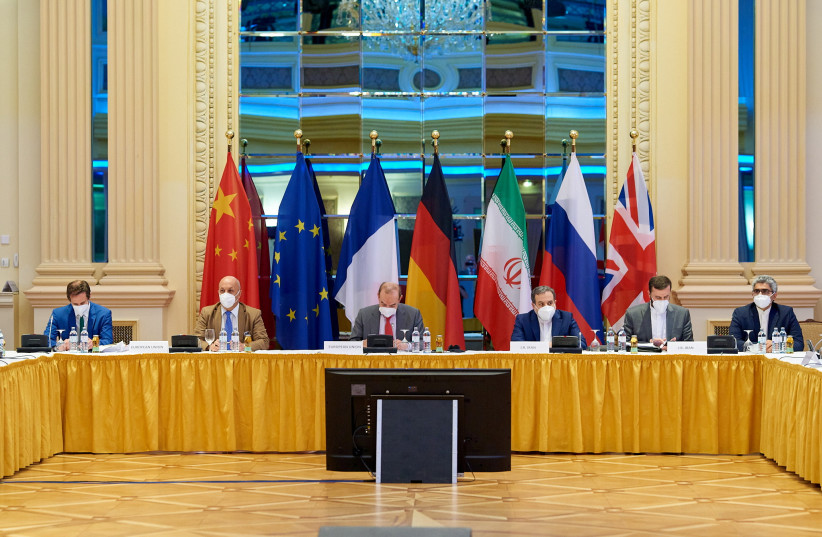The absence of an Iran deal could spell more imminent nuclear danger for Israel and its allies, intelligence sources have indicated to The Jerusalem Post, although both the governments of Benjamin Netanyahu and Naftali Bennett have opposed the deal.
Some in the intelligence and defense establishment view no deal as much worse than even a bad deal.
The rationale from these sources is that Iran could jump to 90% weaponized uranium in a matter of weeks.
In addition, when adding up all the different levels of enrichment Iran has accumulated, it could break out to not only one nuclear bomb but in some estimates to as many as four.
True, Iran has not yet mastered a number of weaponization issues relating to detonation and delivery of a nuclear bomb. However, members of the intelligence and defense establishment who are in favor of a bad deal as opposed to a no-deal scenario say the latter might embolden Iran to try to master those skills, even at the risk of a potential attack by Israel or the US.

In contrast, if there is a nuclear deal with all of its weaknesses, these sources say Iran has a clear record of putting off the issue of weaponization to avoid the risk of an Israeli or US attack.
When faced with criticism that the new emerging nuclear deal would not delay Iran’s nuclear weapons program by 15 years as it did in 2015, but possibly only by two and a half years, these officials say any amount of time that can be bought to delay the Islamic Republic from jumping forward should be taken advantage of.
There is also a belief by most of these officials that the ayatollahs would never actually use a nuclear weapon but merely want to have it to strengthen their ability to achieve regional hegemony.
Some sources provocatively even suggest that the West did not do enough to relieve sanctions on Iran during the 2015-2017 period of the Obama administration. In their alternative narrative, Iran is a bad actor, but it can be encouraged by a mix of positive and negative incentives to indefinitely delay crossing the nuclear threshold.
This formula has kept Tehran at bay for around 25 years, they say. Not that this group is into naïve pacifism. They would approve of hits such as the one on Sunday against a senior IRGC official, which was attributed to Israel.
But they wish to reap some benefit, however temporary, from US diplomacy – and if diplomacy fails, they forecast much darker times than the government does.
